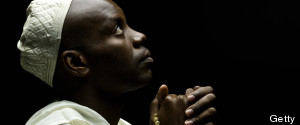The Worst Predictions Of The 2012 Election Season
Tonight, barring some unforeseen horrible event (or a completely foreseen Ohio outcome that puts the fate of the presidency into some sort of weeks-long legal limbo that will have us all crying out for the sweet release of the Mayan Calendar prophesy), the two-year campaign for the White House will conclude and the winner will, in all likelihood, be President Barack Obama or former Massachusetts Gov. Mitt Romney.
Assuming this holds true, there will be nothing left to do but to assay the various predictions made by pundits, pollsters, and prognosticators, and see which ones hold up, and which ones don't. Fortune and glory, maybe, await those who come through in the clutch. Take the case of Nate Silver, for example. Over at Business Insider, Henry Blodget reckons that if "Obama wins relatively easily, as Silver's model is now predicting, Silver's reputation will become gold-plated." On the other hand, if it doesn't pan out for Silver, his "reputation will take a severe hit."
Well, maybe. As it turns out, there have been a lot of terrible predictions made already during the course of 2012. Before we get to what's to come, let's review a year of terrible political soothsayers.
Americans Elect: The silly little Americans Elect project launched with a lot of fanfare, most notably from metaphor mix-master Thomas Friedman: "Write it down: Americans Elect. What Amazon.com did to books, what the blogosphere did to newspapers, what the iPod did to music, what drugstore.com did to pharmacies, Americans Elect plans to do to the two-party duopoly that has dominated American political life — remove the barriers to real competition, flatten the incumbents and let the people in. Watch out." Yep, watch out, because you guys are about to lose millions of dollars on a website full of candidates no one was interested in!
Bill Kristol: By now, you've probably learned how to approach a Bill Kristol prognostication: always assume the opposite is true. That's why we all knew that Rudy Giuliani was definitely not going to run for the GOP nomination when Kristol wrote: "I'm told by two reliable sources that Rudy Giuliani intends to run for the GOP nomination for president in 2012. He may throw his hat in the ring soon."
Charles Krauthammer: Charles Krauthammer took a phone call from Donald Trump back in April of 2011 and somehow, against all good sense, came away with the impression that Trump was absolutely going to make a bona fide run for the White House. Stunningly, Krauthammer's reasoning was this: "But as a person, I thought more highly of him ... because of the gracious way and the calm and courteous way he discussed the issues." A year and a half later, no one associates the words "grace," "calm," or "courteous" with Donald Trump.
Chris Matthews: Chris Matthews has this thing he does on his eponymous Sunday morning show where he asks other reporters to tell him something he doesn't know. And lest you think he's not being entirely earnest about this, consider the fact that this year, he predicted that Rick Perry would not run for President. What's more, Matthews predicted that Michele Bachmann would win the GOP nomination. Granted, he did so on Bill Maher's show, so he might have been either high at the time or otherwise trying to be satiric.
Dick Morris: Dick Morris is maybe the wrongest pundit in Christendom. He's got a lifetime "F" rating from PunditTracker, with seventeen live calls about the 2012 race that haven't come in yet. (More on those in a minute.) Already this year, his predictions have been among the most laughable. Like Krauthammer, he predicted Trump would run for election. He also predicted that Mike Huckabee would run. Both wrong, but the latter pick was, perhaps, forgiveable. His take on the post-convention bounces? Well, he predicted a 5-6 percent bounce for Romney coming out of the Republican convention, and no bounce for Obama coming out of his. This was pretty much perfectly wrong.
George Will: There are a lot of things that Will claims to know "with reasonable certainty." ("Climate change is not happening" is typically one of those things, but he underpins that claim by lying about the work of climate scientists, bamboozling Washington Post readers with the permission of editor Fred Hiatt.) How did he apply "reasonable certainty" to the 2012 race? Quoth Will: "I think we know with reasonable certainty that standing up there on the West front of the Capitol on Jan. 20, 2013 will be one of three people: Obama, [former Minnesota Gov. Tim] Pawlenty and [Indiana Gov. Mitch] Daniels. I think that’s it." If tomorrow's election turns out the way Will hopes, it will be to the detriment of the one remaining third of his "reasonable certainty."
Herman Cain: Here's how Cain gamed out Super Tuesday: “A Super Tuesday prediction is that first, Speaker Newt Gingrich is going to do better in some of the states other than Georgia than most people believe." Well, score one, anyway, for "most people."
Jeffrey Toobin: This isn't an election prediction per se, but Jeffrey Toobin's (prematurely) pronounced death of Obamacare after the second day of oral arguments before the Supreme Court predicted an outcome that would have fundamentally reshaped the entire election year debate. Immediately after the court wrapped for the day, Toobin declared the day to have been "a train wreck for the Obama administration," and decried the performance of Solicitor General Donald Verrilli as "awful." (In fairness to Toobin, our own Mike Sacks said pretty much the same thing, and is perhaps just fortunate in this case that Toobin is the guy everyone remembers.)
Jennifer Rubin: Following Mitt Romney's speech at the 2011 Conservative Political Action Conference, the Washington Post's Chris Cillizza reckoned that Romney had "strengthened his hand" ahead of the year-long battle for the GOP nomination. His Post colleague Rubin disagreed: "However, if there is one point of consensus among plugged-in Republicans on the 2012 field, it is that Romney can't win unless he does a mea culpa on Romneycare. Since he didn't and he won't do that, he's not going to be the nominee." Not only did Romney not offer a mea culpa and became the nominee, Rubin went on to be his most reliable media shill.
Jon Huntsman: Former Utah Gov. Jon Huntsman was pretty sure his surrealist presidential campaign had the race right where he wanted it in New Hampshire. “I can forecast how this thing’s going to play out ... This wave is going to continue to build by the end of the month. It’s going to spill over into early January. It will be a two-man race, I can tell you that right now.” “I’d put 10,000 bucks on it if I were a betting man,” he added. Well, hopefully, Huntsman's dad covered any or all bets: Huntsman finished third in New Hampshire and dropped out before the South Carolina Primary.
Michele Bachmann: Michele Bachmann, naturally, predicted her own success in the Iowa Caucuses, because of galactic math her campaign did: "We're going person to person, mapping who will come out on caucus night. We've already identified more people than Mike Huckabee [who won the 2008 caucus]. It will be a shock." It was not a shock.
Newt Gingrich: Newt Gingrick, naturally, predicted his own success in the 2012 GOP primary because of his own galactic self-regard: “I’m going to be the nominee. It’s very hard not to look at the recent polls and think that the odds are very high I’m going to be the nominee.” Someone was "odd" and/or "high," anyway.
POLITICO: Institutionally speaking, the fevered mind of POLITICO thinks far too many different things at far too many different times to truly make a big deal of any of their "predictions." But when POLITICO really gets way out over their skis is when they claim to have intimate awareness of a portion of the electorate about which they know nothing at all: common people. So, in their weird estimation, "Pawlenty and Huntsman have an informal style that appeals to economically downscale voters." Well, Pawlenty maybe, but as a general rule, "economically downscale voters" are not drawn to the inscrutable campaigns of Chinese-speaking rich dudes who like Captain Beefheart. As Elspeth Reeve put it: "Huntsman appealed only to media people, especially fancy media people, most notably when he was profiled in Vogue."
Rick Scott: Florida's grifter governor was pretty sure that his state was the sine qua non of election year bellwethers: "I personally believe whoever wins [the Florida P5] straw poll, they will be the next president of the United States." Herman Cain won the Florida P5 straw poll.
Rob Portman: Actually, Rob Portman was a man more sinned against than sinning when it came to predictions. Michele Bachmann, Rich Lowry, Paul Begala, Mort Zuckerman, John McLaughlin, Eleanor Clift, and Mark Shields were just some of the many people who predicted Portman would be chosen by Mitt Romney to be his running mate. (One mitigating factor: he probably should have been chosen by Mitt Romney to be his running mate!) Dick Morris, Charles Krauthammer, and Robert Reich all figured Romney would tap Marco Rubio. David Axelrod and Dick Armey came together to wrongly predict that Mitt's VP would be Tim Pawlenty. And numerous people speculated that Joe Biden would be kicked off the ticket in favor of Hillary Clinton, proving that there are no ideas too zany to end up as the matter of dumb speculation.
Steve Forbes: Every once in a while, we are reminded that people sometimes turn to Steve Forbes to suss out what's going to happen in politics. And just as often, we wonder why so many people make this mistake. “I think at the end of the day Perry will win the nomination," Steve Forbes predicted, "I think he'll win the election.” Better luck in 2016, Steve.
Suffolk University Polling: For reasons that basically didn't make any sense, unless Suffolk University's pollsters blew through their 2012 budget on bulk orders of caramel corn and schnapps, Suffolk University pollster David Paleologos decided in the beginning of October to stop polling in North Carolina, Florida, and Virginia, because “I think in places like North Carolina, Virginia and Florida, we’ve already painted those red, we’re not polling any of those states again.” Their last polls of Florida and Virginia had Obama ahead. Both campaigns continued to commit resources to win those states' electoral votes, and those states remain very competitive on Election Day.
Walter Shapiro: "Gingrich also boasts unusual financial and institutional advantages that his rivals lack." Ha, ha: no.
Those are just some of the many really bad predictions that lit the way to Election Day. And, to put it glibly, it's pretty clear that if today's election goes one way in particular, those who have made their careers in analyzing polls and modeling their outcomes are going to spend the rest of the week staring into a deep, existential void. Fortunately for the Nate Silvers of the world, everyone on the list above will probably continue to be allowed to ply their prognostication trade. (Fortunately for me, as well: I picked Kelly Ayotte to be Mitt's running-mate pick. Yikes!)
But there are a lot of folks who have made their own bets on tonight's results, and some of their predictions are not particularly sound.
Take the aforementioned Dick Morris, who predicts a Romney landslide of epic proportions. Morris is on fairly safe ground predicting Romney wins in North Carolina and Indiana, but from there, gets steadily overconfident:
Then, in October, Obama lost the Southern swing states of Florida (29) and Virginia (13). He also lost Colorado (10), bringing his total to 255 votes.And now, he faces the erosion of the northern swing states: Ohio (18), New Hampshire (4) and Iowa (6). Only in the union-anchored state of Nevada (9) does Obama still cling to a lead.
In the next few days, the battle will move to Pennsylvania (20), Michigan (15), Wisconsin (10) and Minnesota (16). Ahead in Pennsylvania, tied in Michigan and Wisconsin, and slightly behind in Minnesota, these new swing states look to be the battleground.
Or will the Romney momentum grow and wash into formerly safe Democratic territory in New Jersey and Oregon?
No, it wont. Morris has sort of hedged his bets a little since then, claiming Hurricane Sandy as an out for his bad prediction (and also as a means of getting gullible people to send him more money to be wrong all the time). By contrast, Michael Barone is downright sober in his landslide prediction -- describing it, at least, as "going out on a limb."
The worst single Election Day prediction made by any Romney supporter, however, is the one made by Michele Bachmann, who is pretty sure that California is a red state: "I believe 2012 will be a wave election that goes all the way across the United States, it will even take in the Golden State, I am so excited."
And when it comes to terrible predictions by those picking Obama to win, no one beats CNBC's Jim "No, no, no, Bear Stearns is fine" Cramer, who says, "The presidential race is nowhere as close as the polls suggest." O-kay, how not-close are we talking? Cramer says Obama wins 440 electoral college votes, to Mitt Romney's 98.
I actually pulled out the electoral map and worked very hard to come up with a scenario where Obama walks away tomorrow with 440 electoral votes. And what I came up with was just straight-up cuckoo-bananas:

I suppose that if I start playing with the split-able electoral votes in Kansas Nebraska and Maine I can get something slightly more plausible, but it would still be way-ridiculous.
If Cramer's prediction turns out to be correct, I pledge to slather Sriracha sauce all over my laptop, eat it whole, and -- later -- die in the emergency room of massive internal trauma as the doctor on call shouts, "He did what now?"
[Would you like to follow me on Twitter? Because why not?]
































Jason Linkins | November 6, 2012 9:45 AM ET